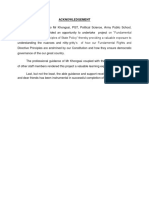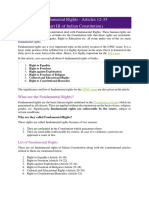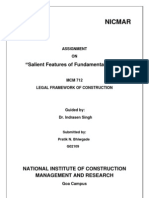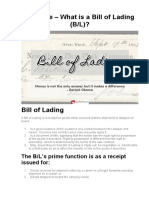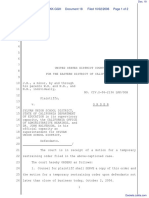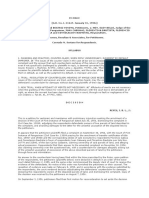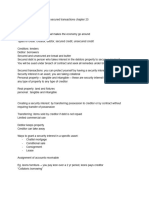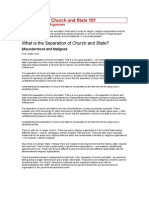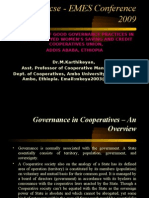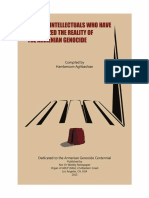Keps202 PDF
Keps202 PDF
Uploaded by
ShruCopyright:
Available Formats
Keps202 PDF
Keps202 PDF
Uploaded by
ShruOriginal Title
Copyright
Available Formats
Share this document
Did you find this document useful?
Is this content inappropriate?
Copyright:
Available Formats
Keps202 PDF
Keps202 PDF
Uploaded by
ShruCopyright:
Available Formats
Indian Constitution at Work
Chapter Two
RIGHTS IN THE INDIAN
CONSTITUTION
INTRODUCTION
26
A constitution is not only about the composition of the various organs of
government and the relations among them. As we studied in the last chapter,
the constitution is a document that sets limits on the powers of the government
and ensures a democratic system in which all persons enjoy certain rights. In this
chapter, we shall study the Fundamental Rights contained in the Indian
Constitution. Part three of the Constitution of India lists the Fundamental
Rights and also mentions the limits on these rights. In the past fifty years, the
scope of rights has changed and in some respects, expanded. After studying this
chapter, you would know
what are the various Fundamental Rights listed in the Constitution of India;
how these rights are protected;
what role the judiciary has played in protecting and interpreting these rights;
and
what is the difference between the Fundamental Rights and the Directive
Principles of State Policy.
2015-16(20/01/2015)
Chapter 2: Rights in the Indian Constitution
THE IMPORTANCE OF RIGHTS
In 1982 during the construction work for Asian Games the
government engaged a few contractors. These contractors employed
a large number of very poor construction workers from different
parts of the country to build the flyovers and stadiums. These workers
were kept in poor working conditions and were paid less than the
minimum wages decided by the government.
A team of social scientists studied their poor condition and
petitioned the Supreme Court. They argued that employing a person
to work for less than the minimum prescribed wage amounts to
begar or forced labour, which is a violation of the Fundamental Right
against exploitation. The court accepted this plea and directed the
government to ensure that thousands of workers get the prescribed
wages for their work.
Machal Lalung was 23 when he was arrested. A resident of
Chuburi village of Morigaon district of Assam, Machal was charged
of causing grievous injuries. He was found mentally too unstable to
stand trial and was sent as under trial to Lok Priya Gopinath Bordoloi
Mental Hospital in Tejpur for treatment.
Machal was treated successfully and doctors wrote twice to jail
authorities in 1967 and 1996 that he was fit to stand trial. But no
one paid any attention. Machal Lalung remained in judicial custody.
Machal Lalung was released in July 2005. He was 77 then. He
spent 54 years under custody during which his case never came up
for hearing. He was freed when a team appointed by the National
Human Rights Commission intervened after an inspection of
undertrials in the State.
Machals entire life was wasted because a proper trial
against him never took place. Our Constitution gives every
citizen the right to life and liberty: this means that every
citizen must also have the right to fair and speedy trial.
Machals case shows what happens when rights granted
by the Constitution are not available in practice.
27
What if Machal was a rich
and powerful man? What
if those working with the
construction contractor
were engineers? Would
their rights have been
violated?
2015-16(20/01/2015)
Indian Constitution at Work
In the case of the first instance also there was violation
of rights provided in the Constitution. But it was
challenged in the court. As a result, workers could get
what was due to them in the form of their rightful wages.
The constitutional guarantee of the right against
exploitation ensured justice to these workers.
Bill of Rights
Both these examples show the importance of having rights
and of the actual implementation of these rights. A
democracy must ensure that individuals have certain
rights and that the government will always recognise these
rights. Therefore it is often a practice in most democratic
countries to list the rights of the citizens in the constitution
itself. Such a list of rights mentioned and protected by
the constitution is called the bill of rights. A bill of rights
prohibits government from thus acting against the rights
of the individuals and ensures a remedy in case there is
violation of these rights.
From whom does a constitution protect the rights of
the individual? The rights of a person may be threatened
by another person or private organisation. In such a
situation, the individual would need the protection of the
government. So, it is necessary that the government is
bound to protect the rights of the individual. On the other
hand, the organs of the government (the legislature,
executive, bureaucracy or even the judiciary), in the course
of their functioning, may violate the rights of the person.
I get it! The bill of rights
is like a warrantee card
that we get when we
purchase a TV or a fan.
Isnt it?
28
FUNDAMENTAL R IGHTS IN THE INDIAN
CONSTITUTION
During our freedom struggle, the leaders of the freedom
movement had realised the importance of rights and
demanded that the British rulers should respect rights of
the people. The Motilal Nehru committee had demanded
a bill of rights as far back as in 1928. It was therefore,
natural that when India became independent and the
Constitution was being prepared, there were no
2015-16(20/01/2015)
Chapter 2: Rights in the Indian Constitution
two opinions on the inclusion
and protection of rights in the
Constitution. The Constitution
listed the rights that would be
specially protected and called
them fundamental rights.
The word fundamental
suggests that these rights are so
important that the Constitution
has separately listed them and
made special provisions for their
protection. The Fundamental
Rights are so important that the
Constitution itself ensures that
they are not violated by the
government.
Fundamental Rights are
different from other rights
available to us. While ordinary
legal rights are protected and
enforced by ordinary law,
Fundamental Rights are
protected and guaranteed by
the constitution of the country.
Ordinary rights may be changed
by the legislature by ordinary
process of law making, but a
fundamental right may only be
changed by amending the
Constitution itself. Besides this,
no organ of the government can
act in a manner that violates
them. As we shall study below
in this chapter, judiciary has the
powers and responsibility to
protect the fundamental rights
from violations by actions of the
Bill of rights in the South African
Constitution
29
The South African Constitution was
inaugurated in December 1996. Its
creation and promulgation took
place at a time when South Africa
still faced the threat of a civil war
after the dissolution of the Apartheid
government. The South African
Constitution says that its Bill of
Rights is a cornerstone of democracy
in South Africa. It forbids
discrimination on the grounds of
race, gender, pregnancy, marital
status, ethnic or social origin,
colour, age, disability, religion,
conscience, belief, culture, language
and birth. It grants perhaps the
most extensive range of rights to the
citizens. A special constitutional
court enforces the rights enshrined
in the constitution.
Some of the Rights included in
the constitution of South Africa
include:
Right to Dignity
Right to Privacy
Right to fair labour practices
Right to healthy environment
and right to protection of
environment
Right to adequate housing
Right to health care, food, water
and social security
Childrens rights
Right to basic and higher
education
Right of cultural, religious and
linguistic communities
Right to information
2015-16(20/01/2015)
Indian Constitution at Work
government. Executive as well as legislative actions can be declared
illegal by the judiciary if these violate the fundamental rights or
restrict them in an unreasonable manner. However, fundamental
rights are not absolute or unlimited rights. Government can put
reasonable restrictions on the exercise of our fundamental rights.
Check your progress
Compare the Fundamental Rights in the Indian Constitution
with the Bill of Rights in the South African Constitution. Make
a list of rights that are:
Common to both the constitutions
Available in South Africa but not in India
Clearly granted in South Africa but implicit in the
Indian Constitution
RIGHT TO EQUALITY
30
Consider the following two situations. These are imaginary situations.
But similar things do happen and can happen. Do you think they
involve violation of fundamental rights?
Swadesh Kumar is visiting his village. He is accompanied by one of his
friends. They decided to have a cup of tea at the village roadside hotel. The
shopkeeper knew Swadesh Kumar but asked the name of his friend to know
his caste. After this the shopkeeper served tea to Swadesh Kumar in a nice
mug while his friend was given tea in an earthen cup because he was dalit.
An order is served to four newsreaders of a television channel that they
would no longer read the news on screen. They are all women. The reason
given is that they are above the age of forty-five. Two male newsreaders
above the same age are not barred from presenting the news.
2015-16(20/01/2015)
Chapter 2: Rights in the Indian Constitution
31
Right to Equality
Right against Exploitation
Equality before law
Prohibition of traffic in human beings
equal protection of laws
Prohibition of discrimination on
grounds of religion, race, caste, sex or
place of birth
equal access to shops, hotels, wells,
tanks, bathing ghats, roads etc.
Equality of opportunity in public
employment
Abolition of Untouchability
Abolition of titles
Right to Freedom
Protection of Right to
freedom of speech and expression;
assemble peacefully;
form associations/unions;
move freely throughout the territory
of India;
reside and settle in any part of India;
practise any profession, or to carry
on any occupation, trade or business.
Protection in respect of conviction for
offences
Right to life and personal liberty
Right to education
Protection against arrest and detention
in certain cases
and forced labour
Prohibition of employment of children
in hazardous jobs
Right to Freedom of Religion
Freedom of conscience and free
profession, practice and propagation of
religion
Freedom to manage religious affairs
Freedom to pay taxes for promotion of
any particular religion
Freedom to attend religious instruction
or worship in certain educational
institutions
Cultural and Educational Rights
Protection of language, culture of
minorities
Right of minorities to establish
educational institutions
Right to Constitutional Remedies
Right to move the courts to issue
directions/orders/writs for enforcement
of rights
2015-16(20/01/2015)
Indian Constitution at Work
Do such things really
happen in our country? Or
are these purely imaginary?
32
These are examples of clear discrimination. In one
instance the discrimination is based on caste and in
another it is based on gender. Do you think that such
discrimination is justified?
Right to equality tries to do away with such and other
discriminations. It provides for equal access to public
places like shops, hotels, places of entertainment, wells,
bathing ghats and places of worship. There cannot be
any discrimination in this access on the grounds only of
religion, race, caste, sex, or place of birth. It also prohibits
any discrimination in public employment on any of the
above mentioned basis. This right is very important
because our society did not practice equal access in the
past.
The practice of untouchability is one of the crudest
manifestations of inequality. This has been abolished
under the right to equality. The same right also provides
that the state shall confer no title on a person except those
who excel themselves in military or academic field. Thus
right to equality strives to make India a true democracy
by ensuring a sense of equality of dignity and status
among all its citizens.
Have you read the Preamble to our Constitution?
How does it describe equality? You will find that the
Preamble mentions two things about equality: equality
Article 16 (4): Nothing in this article shall
prevent the State from making any
provision for the reservation of
appointments or posts in favour of any
backward class of citizens which, in the
opinion of the State, is not adequately
represented in the services under the
State.
2015-16(20/01/2015)
Chapter 2: Rights in the Indian Constitution
of status and equality of opportunity. Equality of opportunity means
that all sections of the society enjoy equal opportunities. But in a
society where there are various kinds of social inequalities, what does
equal opportunity mean? The Constitution clarifies that the
government can implement special schemes and measures for
improving the conditions of certain sections of society: children,
women, and the socially and educationally backward classes. You
may have heard about reservations in jobs, and in admissions. You
would have wondered why there are reservations if we follow the
principle of equality. In fact Article 16(4) of the constitution explicitly
clarifies that a policy like reservation will not be seen as a violation of
right to equality. If you see the spirit of the Constitution, this is
required for the fulfilment of the right to equality of opportunity.
33
YOU ARE THE JUDGE
You have received a post card from
Hadibandhu, who identifies himself as a
member of the dalit community in Puri
district in Orissa. Men from this community
refused to follow a custom that required
them to wash the feet of the groom and
guests of the upper caste during marriage
ceremonies. In revenge, four women from
this community were beaten up and
another was paraded naked. The post card
writer says Our children are educated and
they are not willing to do the customary job of washing the feet of
upper caste men, clear the left-overs after the marriage feast and
wash the utensils.
Assuming that the facts given above are correct, you have to decide:
Does this case involve violation of Fundamental Rights?
What would you order the government to do in this case?
2015-16(20/01/2015)
Indian Constitution at Work
Article 21: Protection of life and personal
libertyNo person shall be deprived of his
life or personal liberty except according
to procedure established by law.
RIGHT TO FREEDOM
Equality and freedom or liberty, are the two rights that
are most essential to a democracy. It is not possible to
think of the one without thinking of the other. Liberty
means freedom of thought, expression and action. However
it does not mean freedom to do anything that one desires
or likes. If that were to be permitted then a large number
of people will not be able to enjoy their freedom. Therefore,
freedoms are defined in such a manner that every person
will enjoy her freedom without threatening freedom of
others and without endangering the law and order
situation.
Does it mean that in some
cases someones life can be
taken away by law? That
sounds strange. Can you
think of an example?
34
Right to life and personal liberty
The foremost right among rights to freedom is the right to
life and personal liberty. No citizen can be denied his or
her life except by procedure as laid down under the law.
Similarly no one can be denied his/her personal liberty.
That means no one can be arrested without being told
the grounds for such an arrest. If arrested, the person
has the right to defend himself by a lawyer of his choice.
Also, it is mandatory for the police to take that person to
the nearest magistrate within 24 hours. The magistrate,
who is not part of the police, will decide whether the arrest
is justified or not.
This right is not just confined to a guarantee against
taking away of an individuals life but has wider
application. Various judgments of Supreme Court have
expanded the scope of this right. The Supreme Court
2015-16(20/01/2015)
Chapter 2: Rights in the Indian Constitution
has ruled that this right also includes right to live with human dignity,
free from exploitation. The court has held that right to shelter and
livelihood is also included in the right to life because no person can
live without the means of living, that is, the means of livelihood.
35
Preventive detention
Ordinarily, a person would be arrested after he or she has reportedly
committed some offence. However there are exceptions to this.
Sometimes a person can be arrested simply out of an apprehension
that he or she is likely to engage in unlawful activity and imprisoned
for some time without following the above mentioned procedure. This
is known as preventive detention. It means that if the government
feels that a person can be a threat to law and order or to the peace
and security of the nation, it can detain or arrest that person. This
preventive detention can be extended only for three months. After
three months such a case is brought before an advisory board for
review.
On the face of it, preventive detention looks like an effective tool
in the hands of the government to deal with anti-social elements or
subversives. But this provision has often been misused by the
government. Many people think that there must be greater safeguards
in this law so that it may not be misused against people for reasons
other than that which are really justified. In fact, there is a clear
tension between right to life and personal liberty and the provision
for preventive detention.
Other freedoms
You can see that under the right to freedom there are some other
rights as well. These rights however are not absolute. Each of these
is subject to restrictions imposed by the government.
For example right to freedom of speech and expression is subject
to restrictions such as public order, peace and morality etc. Freedom
to assemble too is to be exercised peacefully and without arms. The
government may impose restrictions in certain areas declaring the
assembly of five or more persons as unlawful. Such powers can be
easily misused by the administration. The genuine protest against
an act or policy of government by the people may be denied
2015-16(20/01/2015)
Indian Constitution at Work
permission. However, if the people are aware and vigilant in regard
to their rights and choose to protest against such acts of
administration such misuse becomes rare. In the Constituent
Assembly itself, some members had expressed their dissatisfaction
about restrictions on rights.
I feel that many of these fundamental
rights have been framed from the point of
view of a police constable you will find that
very minimum rights have been conceded
and are almost invariably followed by a
proviso. Almost every article is followed by
a proviso which takes away the right almost
completely,...
What should be our conception of
fundamental rights?...We want to
incorporate every one of those rights which
our people want to get.
Somnath Lahiri
CAD, Vol. III, p. 404, 29 April 1947
36
Rights of accused
Our Constitution ensures that persons accused of various offences
would also get sufficient protection. We often tend to believe that
anyone who is charged with some offence is guilty. However, no one is
guilty unless the court has found that person guilty of an offence. It is
also necessary that a person accused of any crime should get adequate
opportunity to defend herself or himself. To ensure a fair trial in courts,
the Constitution has provided three rights:
no person would be punished for the same offence more than
once,
no law shall declare any action as illegal from a backdate,
and
no person shall be asked to give evidence against himself or
herself.
2015-16(20/01/2015)
Chapter 2: Rights in the Indian Constitution
Check your progress
Do you think that the following situations demand
restrictions on right to freedom? Give reasons to support
your answer.
a. People have assembled for a peace march after
communal riots in the city.
b. Dalits are denied entry in a temple. A march is being
organised to forcibly enter the temple.
c. Hundreds of Adivasis blocked the road demanding
that the land taken away from them for an industry
be returned.
d. A caste panchayat is meeting to decide the
punishment to a young couple for marrying outside
their caste.
37
RIGHT AGAINST EXPLOITATION
In our country there are millions of
people who are underprivileged and
deprived. They may be subjected to
exploitation by their fellow human
beings. One such form of
exploitation in our country has been
begar or forced labour without
payment. Another closely related
form of exploitation is buying and
selling of human beings and using
them as slaves. Both of these are
prohibited under the Constitution.
Forced labour was imposed by
landlords, moneylenders and other
wealthy persons in the past. Some
form of bonded labour still
continues in the country, specially
in brick kiln work. It has now
been declared a crime and it is
punishable.
Name the fundamental rights whose
violation is depicted in this
photograph.
2015-16(20/01/2015)
Indian Constitution at Work
The Constitution also forbids employment of children below the
age of 14 years in dangerous jobs like factories and mines. With
child labour being made illegal and right to education becoming a
fundamental right for children, this right against exploitation has
become more meaningful.
RIGHT TO FREEDOM
OF
RELIGION
According to our Constitution, everyone enjoys the right to follow
the religion of his or her choice. This freedom is considered as a
hallmark of democracy. Historically, there were rulers and emperors
in different parts of the world who did not allow residents of their
countries to enjoy the right to freedom of religion. Persons following
a religion different from that of the ruler were either persecuted or
forced to convert to the official religion of the rulers. Therefore,
democracy has always incorporated the freedom to follow the religion
of ones choice as one of its basic principles.
38
Freedom of faith and worship
In India, everyone is free to choose a religion and practice that religion.
Freedom of religion also includes the freedom of conscience. This
means that a person may choose any religion or may choose not to
follow any religion. Freedom of religion includes the freedom to
profess, follow and propagate any religion. Freedom of religion is
subject to certain limitations. The government can impose restrictions
on the practice of freedom of religion in order to protect public order,
morality and health. This means that the freedom of religion is not
an unlimited right. The government can interfere in religious matters
for rooting out certain social evils. For example in the past, the
government has taken steps banning practices like sati, bigamy or
human sacrifice. Such restrictions cannot be opposed in the name
of interference in right to freedom of religion.
The limitations on the right to freedom of religion always produce
tensions between followers of various religions and the government.
When the government seeks to restrict some activities of any religious
group, people of that religion feel that this is interference in their
religion.
Freedom of religion becomes a matter of political controversy for
yet another reason. The Constitution has guaranteed the right
to propagate ones religion. This includes persuading people to
2015-16(20/01/2015)
Chapter 2: Rights in the Indian Constitution
convert from one religion to another. However, some people resent
conversions on the ground that these are based on intimidation or
inducement. The Constitution does not allow forcible conversions. It
only gives us the right to spread information about our religion and
thus attract others to it.
39
Equality of all religions
Being a country which is home to several religions, it is necessary
that the government must extend equal treatment to different
religions. Negatively, it means that government will not favour any
particular religion. India does not have any official religion. We dont
have to belong to any particular religion in order to be a prime
minister or president or judge or any other public official. We have
also seen that under the right to equality, there is a guarantee that
government will not discriminate on the basis of religion in giving
employment. The institutions run by the state will not preach any
religion or give religious education nor will they favour persons of
any religion. The objective of these provisions is to sustain and
nurture the principle of secularism.
Activity
Make a list of public religious activities that take
place in your village or city.
Which of these involve an exercise of right to religious
freedom?
Discuss what could have happened if this right was
not available to people in your locality.
CULTURAL AND EDUCATIONAL RIGHTS
When we talk of the Indian society, the image of diversity comes before
our minds. India is not made up of a monolithic society. We are a
society that has vast diversity. In such a society that is full of diversity,
there would be social sections which are small in numbers compared
to some other groups. If a group is in minority, will it have to adopt
the culture of the majority?
Our Constitution believes that diversity is our strength. Therefore,
one of the fundamental rights is the right of the minorities to
maintain their culture. This minority status is not dependent only
2015-16(20/01/2015)
Indian Constitution at Work
A heavy responsibility would be cast
on the majority to see that in fact the
minorities feel secure. the only safety
for the minorities lies in a secular State.
It pays them to be nationalists ...The
majority community should not boast
of their national outlook. ...They should
try to place themselves in the position
of the minorities and try to appreciate
their fears. All demands for safeguards
...are the products of those fears that
the minorities have in their minds, ...as
regards their language, their script and
also about the services.
Sardar Hukam Singh
CAD, VIII, p. 322, 26 May 1949
upon religion. Linguistic and cultural minorities are also included
in this provision. Minorities are groups that have common language
or religion and in a particular part of the country or in the country
as a whole, they are outnumbered by some other social section. Such
communities have a culture, language and a script of their own, and
have the right to conserve and develop these.
All minorities, religious or linguistic, can set up their own
educational institutions. By doing so, they can preserve and develop
their own culture. The government will not, while granting aid to
educational institutions, discriminate against any educational
institution on the basis that it is under the management of minority
community.
RIGHT TO CONSTITUTIONAL REMEDIES
40
One would agree that our Constitution contains a very impressive
list of Fundamental Rights. But merely writing down a list of rights
is not enough. There has to be a way through which they could be
realised in practice and defended against any attack on these rights.
2015-16(20/01/2015)
Chapter 2: Rights in the Indian Constitution
Right to constitutional remedies is the means through
which this is to be achieved. Dr. Ambedkar considered
the right to constitutional remedies as heart and soul of
the constitution. It is so because this right gives a citizen
the right to approach a High Court or the Supreme Court
to get any of the fundamental rights restored in case of
their violation. The Supreme Court and the High Courts
can issue orders and give directives to the government for
the enforcement of rights.
The courts can issue various special orders known as
writs.
Habeas corpus: A writ of habeas corpus means
that the court orders that the arrested person
should be presented before it. It can also order to
set free an arrested person if the manner or
grounds of arrest are not lawful or satisfactory.
Mandamus: This writ is issued when the court
finds that a particular office holder is not doing
legal duty and thereby is infringing on the right of
an individual.
Prohibition: This writ is issued by a higher court
(High Court or Supreme Court) when a lower court
has considered a case going beyond its jurisdiction.
Quo Warranto: If the court finds that a person is
holding office but is not entitled to hold that office,
it issues the writ of quo warranto and restricts that
person from acting as an office holder.
Certiorari: Under this writ, the court orders a
lower court or another authority to transfer a
matter pending before it to the higher authority or
court.
Apart from the judiciary, many other mechanisms
have been created in later years for the protection of
rights. You may have heard about the National
Commission on Minorities, the National Commission on
Women, the National Commission on Scheduled Castes,
41
I am in minority in my
locality but majority in
the town, minority if you
look at my language but
majority if you go by my
religion Arent we all
minorities?
2015-16(20/01/2015)
Indian Constitution at Work
etc. These institutions protect the rights of women, minorities or
Dalits. Besides, the National Human Rights Commission has also
been established by law to protect the fundamental and other kinds
of rights.
42
National Human Rights Commission (NHRC)
The real test of the rights given by any constitution is in
their actual implementation. The poor, illiterate and the
deprived sections of the society must be able to exercise
their rights. Independent organisations like the Peoples
Union for Civil Liberties (PUCL) or Peoples Union for
Democratic Rights (PUDR) have been working as
watchdogs against the violations of rights. In this
background, the government has established in 1993 an
institution, the National Human Rights Commission.
The National Human Rights Commission (NHRC) is
composed of a former chief justice of the Supreme Court
of India, a former judge of the Supreme Court, a former
chief justice of a High Court and two other members who
have knowledge and practical experience in matters
relating to human rights.
The Commissions functions include inquiry at its own
initiative or on a petition presented to it by a victim into
complaint of violation of human rights; visit to jails to
study the condition of the inmates; undertaking and
promoting research in the field of human rights, etc.
The Commission receives complaints in thousands
every year. These relate to custodial death, custodial rape,
disappearances, police excesses, failure in taking action,
indignity to women, etc. Its most significant intervention
has been on disappeared youth in Punjab and
investigation and trial of Gujarat riot cases where its
intervention proved effective.
The Commission does not have the power of
prosecution. It can merely make recommendations to the
government or recommend to the courts to initiate
proceedings based on the inquiry that it conducts.
2015-16(20/01/2015)
Chapter 2: Rights in the Indian Constitution
DIRECTIVE PRINCIPLES OF STATE POLICY
The makers of our Constitution knew that independent India was
going to face many challenges. Foremost among these was the
challenge to bring about equality and well-being of all citizens. They
also thought that certain policy direction was required for handling
these problems. At the same time, the Constitution did not want
future governments to be bound by certain policy decisions.
Therefore, some guidelines were incorporated in the Constitution
but they were not made legally enforceable: this means that if a
government did not implement a particular guideline, we cannot go
to the court asking the court to instruct the government to implement
that policy. Thus, these guidelines are non-justiciable i.e., parts of
the Constitution that cannot be enforced by the judiciary. Those who
framed our Constitution thought that the moral force behind these
guidelines would ensure that the government would take them
seriously. Besides, they expected that the people would also hold
the governments responsible for implementing these directives. So,
a separate list of policy guidelines is included in the Constitution.
The list of these guidelines is called the Directive Principles of State
Policy.
43
What do the Directive Principles contain?
The chapter on Directive Principles lists mainly three things:
the goals and objectives that we as a society should adopt;
certain rights that individuals should enjoy apart from the
Fundamental Rights; and
certain policies that the government should adopt.
You may get some idea of the vision of makers of our Constitution
by looking at some of the Directive Principles shown below.
The governments from time to time tried to give effect to some
Directive Principles of State Policy. They passed several zamindari
abolition bills, nationalised banks, enacted numerous factory laws,
fixed minimum wages, cottage and small industries were promoted
and provisions for reservation for the uplift of the scheduled castes
and scheduled tribes were made. Such efforts to give effect to the
2015-16(20/01/2015)
Indian Constitution at Work
Directive Principles include the right to education, formation of
panchayati raj institutions all over the country, partial right to work
under employment guarantee programme and the mid-day meal
scheme etc.
Fundamental Duties of citizens
In 1976, the 42nd amendment to the Constitution was
passed. Among other things, this amendment inserted
a list of Fundamental Duties of Citizens. In all, ten duties
were enumerated. However, the Constitution does not
say anything about enforcing these duties.
As citizens, we must abide by the Constitution, defend
our country, promote harmony among all citizens, protect
the environment.
However, it must be noted that our Constitution does
not make the enjoyment of rights dependent or
conditional upon fulfilment of duties. In this sense, the
inclusion of fundamental duties has not changed the
status of our fundamental rights.
44
Check your progress
It is estimated that there are about three million urban homeless
in India. Night shelters are not available for more than five per
cent of this population. Hundreds of these old, sick homeless
people are killed by cold wave during winter. They cannot have
ration and voting cards in the absence of any proof of residence.
Without these documents they also cannot avail government
help as needy patients. A large number of these homeless people
are casual workers, who earn very low wages. They travel to
the city in search of work from different parts of the country.
Use these facts to write a petition to the Supreme Court of
India under the Right to Constitutional Remedies. Your petition
should mention:
a. What Fundamental Rights are being denied to the homeless
in their everyday life?
b. What kind of order would you request the Supreme Court
to issue?
2015-16(20/01/2015)
Chapter 2: Rights in the Indian Constitution
R ELATIONSHIP BETWEEN F UNDAMENTAL RIGHTS
DIRECTIVE PRINCIPLES
AND
45
It is possible to see both Fundamental Rights and Directive Principles
as complementary to each other. Fundamental Rights restrain
the government from doing certain things while Directive
D IRECTIVE P RINCIPLES
Goals
Welfare of the people; Social,
economic and political
justice;
Raising the standard of
living; equitable distribution
of resources;
Promotion of international
peace
Non-justiciable rights
Adequate livelihood;
Equal pay for equal work for
men and women;
Right against economic
exploitation;
Policies
Right to work;
Uniform civil code;
Early childhood care and
education to children below
the age of six years
Prohibition of consumption
of alcoholic liquor;
Promotion of cottage
industries;
Prevention of slaughter of
useful cattle;
Promotion of village
panchayats
Tell me what is the point
of saying nice things in
the Constitution if these
cannot be implemented by
any court?
2015-16(20/01/2015)
Indian Constitution at Work
Principles exhort the government to do certain things. Fundamental
Rights mainly protect the rights of individuals while directive
principles ensure the well-being of the entire society.
However, at times, when government intends to implement
Directive Principles of State Policy, it can come in conflict with the
Fundamental Rights of the citizen.
This problem arose when the government sought to pass laws to
abolish zamindari system. These measures were opposed on the
ground that they violated right to property. However, keeping in mind
the societal needs that are greater than the individual interests, the
government amended the Constitution to give effect to the Directive
Principles of State Policy. This led to a long legal battle. The executive
and the judiciary took different positions. The government claimed
that rights can be abridged for giving effect to Directive Principles.
This argument assumed that rights were a hindrance to welfare of
the people. On the other hand, the court held the view that
Fundamental Rights were so important and sacred that they cannot
be limited even for purposes of implementing Directive Principles.
46
Right to Property
Behind the controversy about the relationship between rights
and directive principles, there was one important reason: in
the Constitution, originally, there was a fundamental right to
acquire, possess and maintain property. But the Constitution
made it clear that property could be taken away by the
government for public welfare. Since 1950, government made
many laws that limited this right to property. This right was at
the centre of the long debate over the relationship between rights
and directive principles. Finally, in 1973, the Supreme Court
gave a decision that the right to property was not part of the
basic structure of the Constitution and therefore, parliament
had power to abridge this right by an amendment. In 1978, the
44th amendment to the Constitution removed the right to property
from the list of Fundamental Rights and converted it into a simple
legal right under article 300 A.
What difference, do you think, this change of status makes
to the right to property?
2015-16(20/01/2015)
Chapter 2: Rights in the Indian Constitution
This generated another complicated debate. This related to the
amendment of the Constitution. The government was saying that
Parliament can amend any part of the Constitution. The court was
saying that Parliament cannot make an amendment that violated
Fundamental Rights. This controversy was settled by an important
decision of the Supreme Court in Kesavananda Bharati case. In this
case, the court said that there are certain basic features of the
Constitution and these cannot be changed by Parliament. We shall
discuss this in greater detail in Chapter 9 on Constitution as a Living
Document.
47
2015-16(20/01/2015)
Indian Constitution at Work
Check your progress
Read the main points of the Bill of Rights in the South
African Constitution and the Directive Principles in India.
Which are the common points in the two lists?
Why did the South African Constitution put these in the
Bill of Rights?
If you were writing the constitution for a new country,
what would you suggest?
Conclusion
In the writings of Jotirao Phuley (1827-1890), a radical social
reformer from Maharashtra, we find one of the earliest
expressions of the view that rights include both freedom and
equality. During the national movement, this idea of rights was
further sharpened and expanded to constitutional rights. Our
Constitution reflected this long tradition and listed the
fundamental rights. Since 1950, the judiciary has functioned
as an important protector of rights.
Judicial interpretations have expanded the scope of rights
in many respects. The government and administration of our
country function within this overall framework. Rights enforce
limitations on the functioning of the government and ensure
democratic governance of the country.
48
2015-16(20/01/2015)
Chapter 2: Rights in the Indian Constitution
Exercises
49
1. Write true or false against each of these statements:
a) A Bill of Rights lays down the rights enjoyed by the people of a
country.
b) A Bill of Rights protects the liberties of an individual.
c) Every country of the world has a Bill of Rights.
d) The Constitution guarantees remedy against violation of Rights.
2. Which of the following is the best description of Fundamental Rights?
a) All the rights an individual should have.
b) All the rights given to citizens by law.
c) The rights given and protected by the Constitution.
d) The rights given by the Constitution that cannot ever be
restricted.
3. Read the following situations. Which Fundamental Right is being
used or violated in each case and how?
a) Overweight male cabin crew are allowed to get promotion in the
national airlines but their women colleagues who gain weight
are penalised.
b) A director makes a documentary film that criticises the policies
of the government.
c) People displaced by a big dam take out a rally demanding
rehabilitation.
d) Andhra society runs Telugu medium schools outside Andhra
Pradesh.
4. Which of the following is a correct interpretation of the Cultural
and Educational Rights?
a) Only children belonging to the minority group that has opened
educational institution can study there.
b) Government schools must ensure that children of the minority
group will be introduced to their belief and culture.
c) Linguistic and religious minorities can open schools for their
children and keep it reserved for them.
d) Linguistic and religious minorities can demand that their
children must not study in any educational institution except
those managed by their own community.
2015-16(20/01/2015)
Indian Constitution at Work
5 . Which of the following is a violation of Fundamental Rights and
why?
a) Not paying minimum wages
b) Banning of a book
c) Banning of loudspeakers after 9 pm.
d) Making a speech
6 . An activist working among the poor says that the poor dont need
Fundamental Rights. What they need are Directive Principles to be
made legally binding. Do you agree with this? Give your reasons.
7 . Several reports show that caste groups previously associated with
scavenging are forced to continue in this job. Those in positions of
authority refuse to give them any other job. Their children are
discouraged from pursuing education. Which of their Fundamental
Rights are being violated in this instance?
8 . A petition by a human rights group drew attention of the court to
the condition of starvation and hunger in the country. Over five
crore tonnes of food grains was stored in the godowns of the Food
Corporation of India. Research shows that a large number of ration
cardholders do not know about the quantity of food grains they can
purchase from fair price shops. It requested the court to order the
government to improve its public distribution system.
a. Which different rights does this case involve? How are these
rights interlinked?
b. Should these rights form part of the right to life?
9 . Read the statement by Somnath Lahiri in the Constitutent Assembly
quoted in this chapter. Do you agree with him? If yes, give instances
to prove it. If not, give arguments against his position.
10. Which of the Fundamental Rights is in your opinion the most
important right? Summarise its provisions and give arguments to
show why it is most important.
50
2015-16(20/01/2015)
You might also like
- © Ncert Not To Be Republished: Rights in The Indian ConstitutionDocument25 pages© Ncert Not To Be Republished: Rights in The Indian ConstitutionNaman GuptaNo ratings yet
- RIGHTS IN THE INDIAN CONSTITUTION Part 1Document44 pagesRIGHTS IN THE INDIAN CONSTITUTION Part 1TiyaNo ratings yet
- Fundamental RightsDocument4 pagesFundamental RightsBhavya Bhatt100% (1)
- Fundamental RightsDocument8 pagesFundamental Rightskarmanya.legal23No ratings yet
- Class 11 Political Science - Rights in The Indian ConstitutionDocument12 pagesClass 11 Political Science - Rights in The Indian ConstitutionRamita Udayashankar100% (2)
- Democratic Rights notesDocument5 pagesDemocratic Rights notespurvanshi009No ratings yet
- The Fundamental Rights in India Enshrined in Part III (ArticDocument12 pagesThe Fundamental Rights in India Enshrined in Part III (Artichy6079697No ratings yet
- Political Science ProjectDocument11 pagesPolitical Science ProjectKamakshi BhandariNo ratings yet
- Fundamental RightsDocument5 pagesFundamental Rightsdeepakbadnayak2002No ratings yet
- 35 Rights in The Indian ConstitutionDocument29 pages35 Rights in The Indian ConstitutionHarshitaNo ratings yet
- Political Science 1-2 Class Xi (2020-21)Document12 pagesPolitical Science 1-2 Class Xi (2020-21)Arijit RoyNo ratings yet
- Fundamental RightsDocument3 pagesFundamental RightsRishi GadhiNo ratings yet
- Rights in The Indian Constitution: Chapter TwoDocument25 pagesRights in The Indian Constitution: Chapter TwoDaniel AnojNo ratings yet
- Political Science AssignmentDocument7 pagesPolitical Science AssignmentANIKET MISHRA 103No ratings yet
- Rights in The Indian ConstitutionDocument12 pagesRights in The Indian ConstitutionkanhaiyagiwardiaNo ratings yet
- FC Sem 1 Basic Features of Indian ConstitutionDocument4 pagesFC Sem 1 Basic Features of Indian ConstitutionDineshNo ratings yet
- human rightDocument7 pageshuman rightRoni SharmaNo ratings yet
- Ic Chpater-2 Notes.docxDocument13 pagesIc Chpater-2 Notes.docxrachanakv1408No ratings yet
- Constitution Mid TermDocument8 pagesConstitution Mid TermyisengonlantaimyungNo ratings yet
- Human RightsDocument19 pagesHuman RightsSujata Mansukhani100% (2)
- Fundamental RightsDocument5 pagesFundamental RightsKopalNo ratings yet
- Module - 2Document14 pagesModule - 2Jack Stephen.GNo ratings yet
- Indian Constitution AssignmentDocument11 pagesIndian Constitution AssignmentTaruun R MalikNo ratings yet
- Fundamental Rights Indian Polity PDFDocument5 pagesFundamental Rights Indian Polity PDFbrindhaNo ratings yet
- "Chapter 2: Rights in The Indian Constitution ": F R I CDocument4 pages"Chapter 2: Rights in The Indian Constitution ": F R I Craj pandeyNo ratings yet
- History project vidhiDocument6 pagesHistory project vidhidoshipratikshaNo ratings yet
- Unit - 3 Fundamental Rights Study MaterialDocument9 pagesUnit - 3 Fundamental Rights Study MaterialKhushi SinghNo ratings yet
- Human Rights in Indian ConstitutionDocument10 pagesHuman Rights in Indian ConstitutionKeerthikrishna SNo ratings yet
- Rights in The Indian ConstitutionDocument33 pagesRights in The Indian Constitutionmax lifeNo ratings yet
- Fundamental Rights of IndiaDocument11 pagesFundamental Rights of IndiatechzonesNo ratings yet
- Chapter 6Document17 pagesChapter 6sushmitalakshme04officialNo ratings yet
- 10. Fundamental Rights 1Document7 pages10. Fundamental Rights 1Deepak vermaNo ratings yet
- BCA Final NoteDocument18 pagesBCA Final Notelucifer700001No ratings yet
- PreambleDocument19 pagesPreamblechrismatheus.se24No ratings yet
- HUMAN RIGHTSDocument5 pagesHUMAN RIGHTSRajni PorwalNo ratings yet
- Constitution PresentationDocument5 pagesConstitution PresentationSharafat AliNo ratings yet
- L-6 Fundamental RightsDocument13 pagesL-6 Fundamental RightsPranay AryaNo ratings yet
- Fundamental Rights of People and Democracy PDFDocument7 pagesFundamental Rights of People and Democracy PDFAjinkya ChincholeNo ratings yet
- Fundamental RightsDocument16 pagesFundamental RightsKanakarajan KriNo ratings yet
- Rights in Indian ConstitutionDocument7 pagesRights in Indian ConstitutionNorth South Chemical and Detergents VannerNo ratings yet
- Relationship Between Fundamental Rights and DPSP.Document10 pagesRelationship Between Fundamental Rights and DPSP.Faraz KhanNo ratings yet
- Democratic Rights Q AnswersDocument6 pagesDemocratic Rights Q AnswersadhirajNo ratings yet
- Significance of Fundamental RightsDocument12 pagesSignificance of Fundamental RightsArun Kumar Panda.No ratings yet
- Unit 1 Constitution BALLB II Sem PDFDocument91 pagesUnit 1 Constitution BALLB II Sem PDFMahimaNo ratings yet
- Name - Class - Sub - : Rupam Mandal (Lateral Entry) Eiectrical 3 Sem, Year-2 Indian Constitution (Assigment)Document6 pagesName - Class - Sub - : Rupam Mandal (Lateral Entry) Eiectrical 3 Sem, Year-2 Indian Constitution (Assigment)RupamNo ratings yet
- Module 2 - IC-1Document48 pagesModule 2 - IC-1sinan2004mdNo ratings yet
- Indian ConstitutionDocument23 pagesIndian Constitution1234nag56No ratings yet
- All Notes Consti (Replica)Document235 pagesAll Notes Consti (Replica)Aryan Vaibhav SrivastavaNo ratings yet
- Indian Constitution: Preamble Fundamental Rights and Duties Directive PrinciplesDocument8 pagesIndian Constitution: Preamble Fundamental Rights and Duties Directive PrinciplesAman KumarNo ratings yet
- Untitled document - Google DocsDocument10 pagesUntitled document - Google Docsmsblazee21No ratings yet
- Fundamental Rights: Q. What Do You Understand by Fundamental Rights? Discuss With Respect To Indian ConstitutionDocument4 pagesFundamental Rights: Q. What Do You Understand by Fundamental Rights? Discuss With Respect To Indian ConstitutionShubhika PantNo ratings yet
- Fundamental Rights of Indian Constitution - (Article 12-35)Document28 pagesFundamental Rights of Indian Constitution - (Article 12-35)y8337655No ratings yet
- COI Assignment ADocument4 pagesCOI Assignment Arikhiraj bhuyanNo ratings yet
- The Indian ConstitutionDocument8 pagesThe Indian Constitutionaloksbi.srivastavaNo ratings yet
- Fundamental RightsDocument10 pagesFundamental RightsPravin PawarNo ratings yet
- Defending Freedom of Contract: Constitutional Solutions to Resolve the Political DivideFrom EverandDefending Freedom of Contract: Constitutional Solutions to Resolve the Political DivideNo ratings yet
- It’s Time to Implement the Forgotten Constitution of India for Liberty and DignityFrom EverandIt’s Time to Implement the Forgotten Constitution of India for Liberty and DignityRating: 3 out of 5 stars3/5 (2)
- The Philosophy of The Constitution: Chapter TenDocument23 pagesThe Philosophy of The Constitution: Chapter TenShruNo ratings yet
- Keps207 PDFDocument26 pagesKeps207 PDFShruNo ratings yet
- Keps204 PDFDocument22 pagesKeps204 PDFShruNo ratings yet
- HistoryClass9 PDFDocument189 pagesHistoryClass9 PDFShruNo ratings yet
- Family Law - I: Unit 1 Lecture 2 Gunjan Agrahari Assistant Professor Law, DME, NoidaDocument29 pagesFamily Law - I: Unit 1 Lecture 2 Gunjan Agrahari Assistant Professor Law, DME, NoidaSagar PachauriNo ratings yet
- Estrada Vs DesiertoDocument36 pagesEstrada Vs DesiertoTheodore BallesterosNo ratings yet
- Tax Mock Bar ExamDocument6 pagesTax Mock Bar ExamMarco RvsNo ratings yet
- Roxas vs. CADocument7 pagesRoxas vs. CAAji AmanNo ratings yet
- Annex 1 CISG AC Opinion No. 20 Case Law On The CISG and HardshipDocument8 pagesAnnex 1 CISG AC Opinion No. 20 Case Law On The CISG and HardshipZviagin & CoNo ratings yet
- Fortich v. CoronaDocument3 pagesFortich v. CoronaAnthony Arcilla Pulhin100% (1)
- Maritime - What Is A Bill of Lading (BL)Document7 pagesMaritime - What Is A Bill of Lading (BL)Giorgi KandelakiNo ratings yet
- FactsDocument38 pagesFactsShiela VenturaNo ratings yet
- Ilbert Bill 1884 - 14221744 - 2023 - 12 - 07 - 13 - 23Document2 pagesIlbert Bill 1884 - 14221744 - 2023 - 12 - 07 - 13 - 23deekshaa685No ratings yet
- SOGIE Bill Explainer: Source: Divina Law, and Senator Risa Hontiveros Speech in SenateDocument29 pagesSOGIE Bill Explainer: Source: Divina Law, and Senator Risa Hontiveros Speech in SenateMark Jeeg C. JaminNo ratings yet
- Land Bank V KhoDocument3 pagesLand Bank V KhoDaryst Huertas100% (1)
- People of The Philippines vs. Roger Sagun. G.R. No. 119076. March 25, 2002.Document3 pagesPeople of The Philippines vs. Roger Sagun. G.R. No. 119076. March 25, 2002.SSNo ratings yet
- R. v. Sylvan Union School District Et Al - Document No. 18Document2 pagesR. v. Sylvan Union School District Et Al - Document No. 18Justia.comNo ratings yet
- Perez vs. CaDocument39 pagesPerez vs. CaAnny YanongNo ratings yet
- Quiz - COMLAWDocument27 pagesQuiz - COMLAWceidris MartinezNo ratings yet
- Chattel MortgageDocument4 pagesChattel MortgageAngel UrbanoNo ratings yet
- Quiz Estate TaxationDocument7 pagesQuiz Estate TaxationAngel MarieNo ratings yet
- Civil Procedure - Udsm Manual 2002Document107 pagesCivil Procedure - Udsm Manual 2002habiye2013100% (2)
- Walker v. Netterville - Document No. 4Document4 pagesWalker v. Netterville - Document No. 4Justia.comNo ratings yet
- Navarro Vs BelloDocument3 pagesNavarro Vs BelloMarco ArponNo ratings yet
- Marshalling TPA - VAISHALI SAXENADocument27 pagesMarshalling TPA - VAISHALI SAXENARohan LopezNo ratings yet
- Legal Aspects of Business - Secured Transactions Chapter 23Document4 pagesLegal Aspects of Business - Secured Transactions Chapter 23summertimechloeNo ratings yet
- Villena v. Spouses ChavezDocument11 pagesVillena v. Spouses ChavezJolo RomanNo ratings yet
- City of Carmel-By-The-Sea City Council Staff Report: TO: Submit T Ed By: Approved byDocument10 pagesCity of Carmel-By-The-Sea City Council Staff Report: TO: Submit T Ed By: Approved byL. A. PatersonNo ratings yet
- Separation of Church and State 101 (From About Com)Document19 pagesSeparation of Church and State 101 (From About Com)KAW100% (6)
- Cooperative Governance - Dr.M.KarthikeyanDocument26 pagesCooperative Governance - Dr.M.Karthikeyankarthianjale100% (4)
- Turkish IntellectualsDocument158 pagesTurkish IntellectualsARISTEIDIS VIKETOSNo ratings yet
- Disposal of Case On Point of Law: Order 14A Rules of Court 2012Document14 pagesDisposal of Case On Point of Law: Order 14A Rules of Court 2012Siti Edabayu100% (1)
- Rule 86 - Metropolitan Bank & Trust Company vs. Absolute Management CorporationDocument8 pagesRule 86 - Metropolitan Bank & Trust Company vs. Absolute Management CorporationSoc Saballa100% (1)
- Pani Panchayat ElectionDocument3 pagesPani Panchayat ElectionSaktiranjan OjhaNo ratings yet







